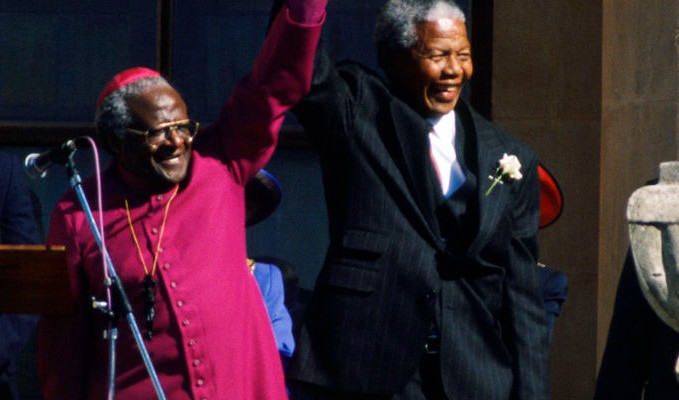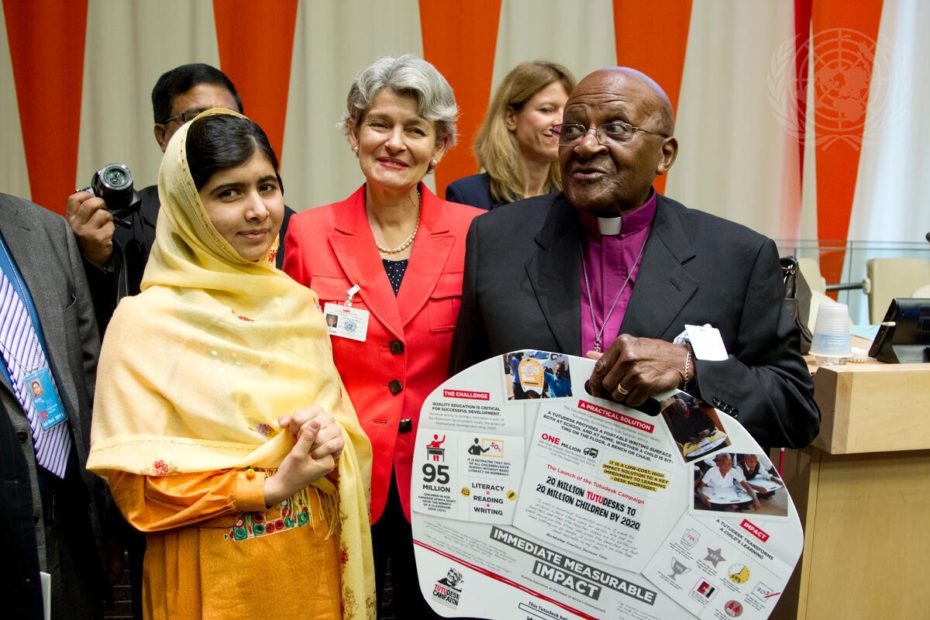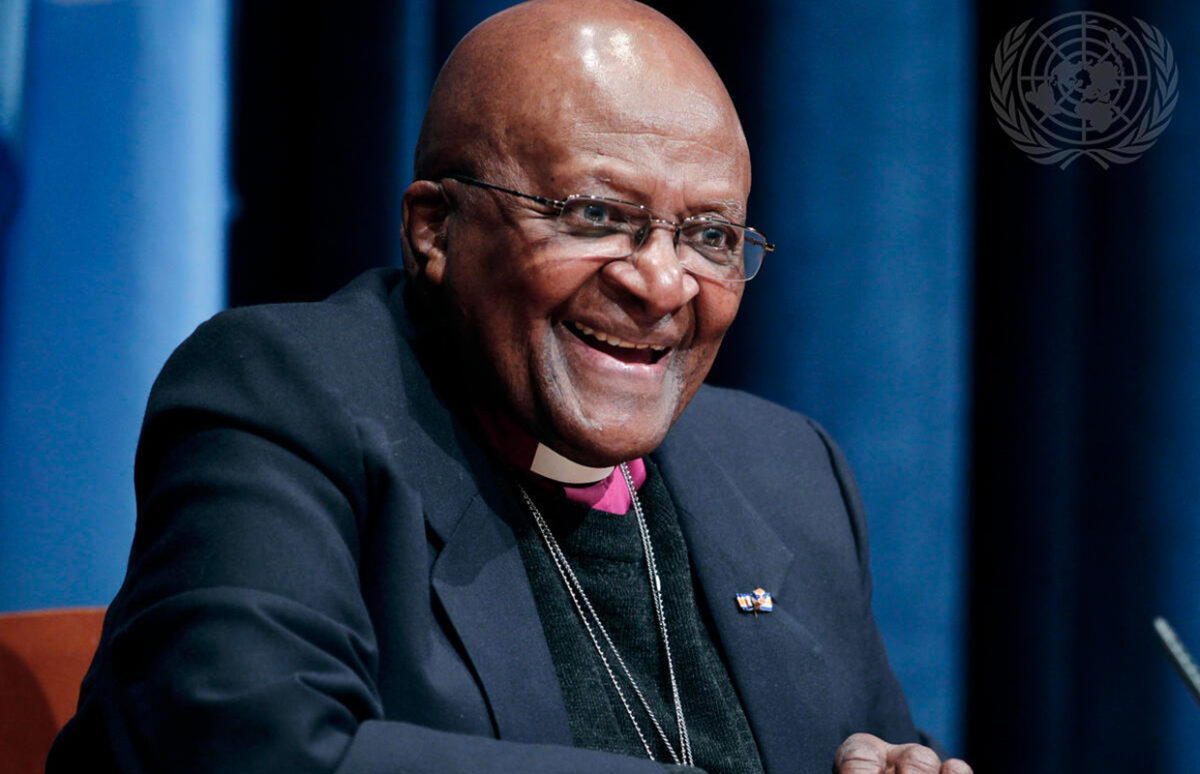Archbishop Desmond Tutu had a unique role in the opposition to apartheid and transition to democracy in South Africa. Because he was not a political figure, but an activist and church leader, he was able to speak out when others were censored. He died at the age of 90 on 26 December.
Desmond Tutu was born in 1931 in Klerksdorp, Transvaal, into a society where the colour of his skin dictated his rights and prospects. He was a sickly child, suffering from polio and tuberculosis, and not expected to live. But he did, and trained to be a teacher like his father, and his wife Leah. But the Tutus were opposed to the Bantu Education Act 1953, which they felt further disadvantaged black children. They left teaching and Desmond Tutu studied theology. He was ordained as an Anglican priest in 1961.
He spent several years studying and working in the U.K. in the 1960s and 1970s. In 1975 he was appointed Dean of St. Mary’s Cathedral in Johannesburg, the first non-white to hold that position.
Promoting Peace
The Church was one of the domains in South African society where black South Africans could achieve positions of authority. By the time Tutu was awarded the Nobel Peace Prize in 1984, the South African Council of Churches had 80 percent black members, and they dominated the leadership positions. Tutu went on to become a Bishop and then Archbishop of Cape Town, the de facto head of the Anglican church in South Africa.
As such, Tutu was able to speak out internationally against the apartheid regime when many other opponents were imprisoned or in exile for their views. He argued vociferously for international trade and cultural sanctions against the South African government as a way to put pressure for change.
Tutu stuck resolutely to a non-violent stance, but that didn’t mean he didn’t face violence. He and fellow SACC leader Peter Storey were kidnapped by men who said they intended to kill them, but were eventually set free. His family was targeted too, with his children answering the phone at home to hear death threats made against their father.

Truth and Reconciliation
When the apartheid regime finally came to an end with the country’s first free elections in 1994, the new president Nelson Mandela asked Archbishop Tutu to chair the Truth and Reconciliation Commission. It offered a forum to investigate atrocities committed during apartheid, often allowing families to learn the fates of their loved ones, while offering amnesty to the perpetrators. There was a real fear at the time that the country would break down into civil war and Tutu saw the TRC as a fragile olive branch. He said:
“The central concern [of the TRC] is not retribution or punishment, “but in the spirit of ubuntu, the healing of breaches, the redressing of imbalances, the restoration of broken relationships”.
He later described his time at the Commission as harrowing. He was frequently seen to cry when hearing testimony.
With Mandela, Tutu went on to become a founding member of the Elders, a group of retired leaders and Nobel Peace Laureates who work around the world on conflict resolution.

Tutu officially retired in 2010 at the age of 79. In his final years, as well as publicly criticising corruption and inaction from successive ANC governments, he continued to speak out in favour of LGBTQI+ rights, and for action against climate change. True to his environmentalist beliefs, he chose for his body be aquamated, a process which replaces cremation and is much more eco-friendly.
Dr Thabo Makgoba, the current Archbishop of Cape Town, remembered Desmond Tutu’s infectious optimism and simplicity, quoting the epitaph he once chose for himself:
“He laughed. He cried. He loved.”
Copyright(s) :
UN Photo/Paulo Filgueiras
Nelson Mandela Foundation
UN Photo/JC McIlwaine
Tag(s) : "apartheid" "Desmond Tutu" "human rights" "Nelson Mandela" "Nobel prize" "reconciliation" "South Africa"






